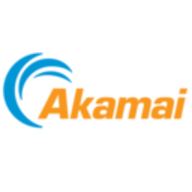

Radware DDoS and Akamai App and API Protector are prominent in the cybersecurity market, focusing on DDoS protection and web application security, respectively. Radware has the edge in providing comprehensive DDoS protection, while Akamai stands out with its advanced AI-driven threat intelligence for web applications.
Features: Radware DDoS provides strong DDoS protection with data scrubbing capabilities, SSL-based attack mitigation, and seamless integration with Alteon and AppWall for holistic defense. Its features include real-time protection against diverse attack vectors, a user-friendly interface, and efficient volumetric and application-layer protection. Akamai App and API Protector excels with its powerful Web Application Firewall (WAF), AI-driven threat intelligence, and extensive traffic analysis tools. It also offers effective bot management and IP reputation services, providing comprehensive security for web applications.
Room for Improvement: Radware DDoS could enhance its integration with third-party platforms and improve customer service communication. There is also a need for better cloud service functionality and more granular security configurations. Akamai's WAF needs improvement to reduce reliance on additional layers for advanced threat protection. Enhancements in the user interface and better integration for specific rules and advanced analytics could improve the user experience.
Ease of Deployment and Customer Service: Radware DDoS is typically deployed in on-premise and hybrid cloud environments, providing flexibility but requiring technical involvement. Customer service feedback is mixed, with some users noting exceptional support while others see room for improvement. Akamai offers a predominantly cloud-based solution with simple deployment and reliable 24/7 technical support, although there are higher expectations regarding scalability and integration capabilities.
Pricing and ROI: Radware DDoS is perceived as costly, reflecting the comprehensive protection it offers, with long-term benefits justifying the expense. Akamai is also considered expensive, particularly for SMEs, yet its bundled services and quality often validate the price. Both solutions provide strong ROI through preventing costly downtime and reputational damage, although exact ROI metrics are challenging to quantify.
The hybrid approach optimized infrastructure costs and personnel resources.
Because of Radware DDoS, many attacks can be mitigated effectively.
I have seen a return on investment with Radware DDoS because it reduced our work by mitigating traffic before it reached the perimeter firewall, which lessened the need for extra security policies.
Providing assistance almost instantly when needed.
Ensuring less than one second mitigation for L3/L4 and less than ten seconds for L7.
Sometimes I do not even get a response for days.
In terms of scalability, Radware DDoS excels.
In terms of scalability, Radware DDoS is easy to use.
Radware DDoS's scalability is good; scaling up or down is easy without performance issues.
In my opinion, there is no downtime experienced with Radware DDoS Protection Service due to external network redundancy.
DefensePro is the technology that is in front of the traffic and protects against DDoS attacks.
Radware DDoS is stable in my experience, with no downtime or reliability issues.
We suggest that clear visibility within a management console could significantly enhance Radware DDoS's usability.
There should be improved bot management integration that mitigates bot-based DDoS attacks completely.
Radware DDoS does not have any authentication countermeasures to mitigate any attacks, which needs to be addressed.
Radware pricing is on the high end, suitable more for larger organizations.
I didn't check pricing of other providers in depth but verified with two, and found Radware to be significantly cheaper compared to F5.
We have a premium cost setup to align with a tier four uptime certified data center, storing and protecting critical infrastructure.
The area in which Akamai excels compared to other competitors with a WAF is in threat intelligence, as threats continually evolve, requiring ongoing updates to backend algorithms to effectively capture smart bots.
The support from Radware is also exceptional, as they are always willing to jump on a call to help solve issues and improve our network design.
This solution is a significant win compared to other vendors because it tries to understand the traffic and the behavior of the traffic, and it utilizes intelligence or machine learning to mitigate false positives, which is highly customized for different types of customers.
The average time for Radware DDoS to detect an incident is only milliseconds, as even a delay of ten seconds is significant in networking.
| Product | Market Share (%) |
|---|---|
| Radware DDoS | 8.1% |
| Akamai App and API Protector | 4.2% |
| Other | 87.7% |

| Company Size | Count |
|---|---|
| Small Business | 4 |
| Midsize Enterprise | 7 |
| Large Enterprise | 18 |
| Company Size | Count |
|---|---|
| Small Business | 20 |
| Midsize Enterprise | 10 |
| Large Enterprise | 21 |
Akamai App and API Protector provides website security by preventing DDoS attacks, acting as an application firewall, managing content delivery, and monitoring APIs. It adapts to threat profiles and is used for fast media delivery and identifying malicious activities.
Akamai App and API Protector offers strong protection, adaptable security features, and efficient traffic management. Its WAF blocks IP addresses and country-specific threats while preventing SQL injections. Companies utilize it for scalable CDN services and comprehensive traffic analysis. Known for its cost-effectiveness and user-friendly dashboard, this protector stands out for its customizable rules and technical support. Users also highlight the ease of integration and detailed attack insights available through its advanced dashboard.
What are the key features of Akamai App and API Protector?In media, Akamai App and API Protector ensures smooth streaming by handling high bandwidth demands. E-commerce companies use it to guard against fraud and data breaches. Financial sectors rely on its ability to protect sensitive transactions. Implementations in healthcare focus on safeguarding patient data while maintaining compliance with regulations.
Radware DDoS provides robust multi-layer protection against distributed denial of service attacks, featuring real-time monitoring and anomaly detection. Its scalable cloud-based and on-site deployment options ensure effective safeguarding of critical infrastructure.
Offering comprehensive defense, Radware DDoS includes features like data scrubbing, signature updates, and SSL-based mitigation. Integrated platforms and a user-friendly interface streamline its deployment. With advanced reporting, analytics, and behavioral analysis powered by machine learning, users experience fewer false positives. Despite these strengths, users highlight the need for improved scalability, seamless deployment, and enhanced machine learning capabilities. Better documentation, pricing, and customer service remain areas of improvement.
What features does Radware DDoS offer?In industries like banking, telecom, and government, organizations employ Radware DDoS to protect networks from DDoS attacks. It ensures server, web service, and mail security while enabling traffic monitoring and unauthorized access blocking. Its cloud-based options serve entities seeking infrastructure security and network traffic analysis.
We monitor all Distributed Denial-of-Service (DDoS) Protection reviews to prevent fraudulent reviews and keep review quality high. We do not post reviews by company employees or direct competitors. We validate each review for authenticity via cross-reference with LinkedIn, and personal follow-up with the reviewer when necessary.